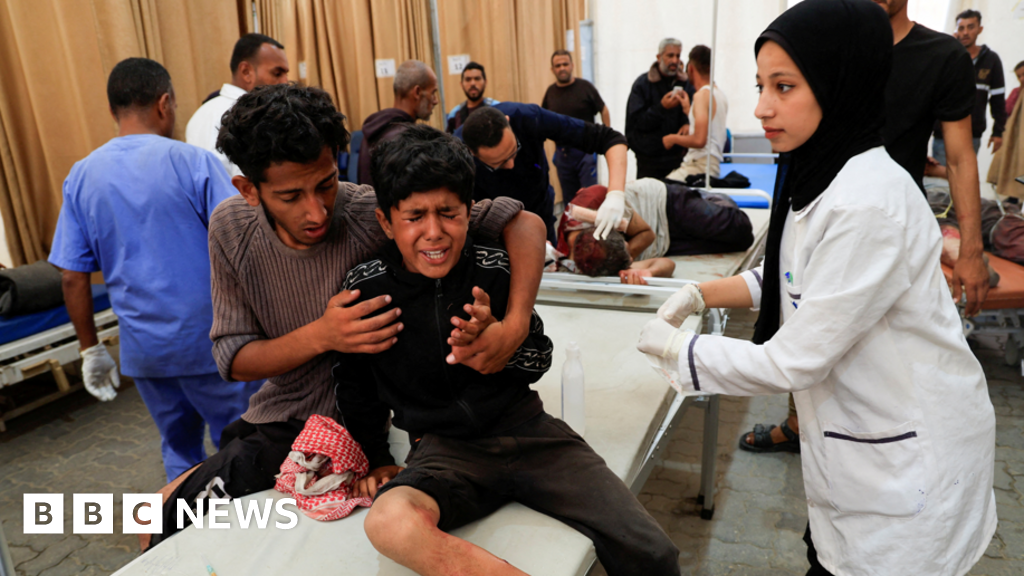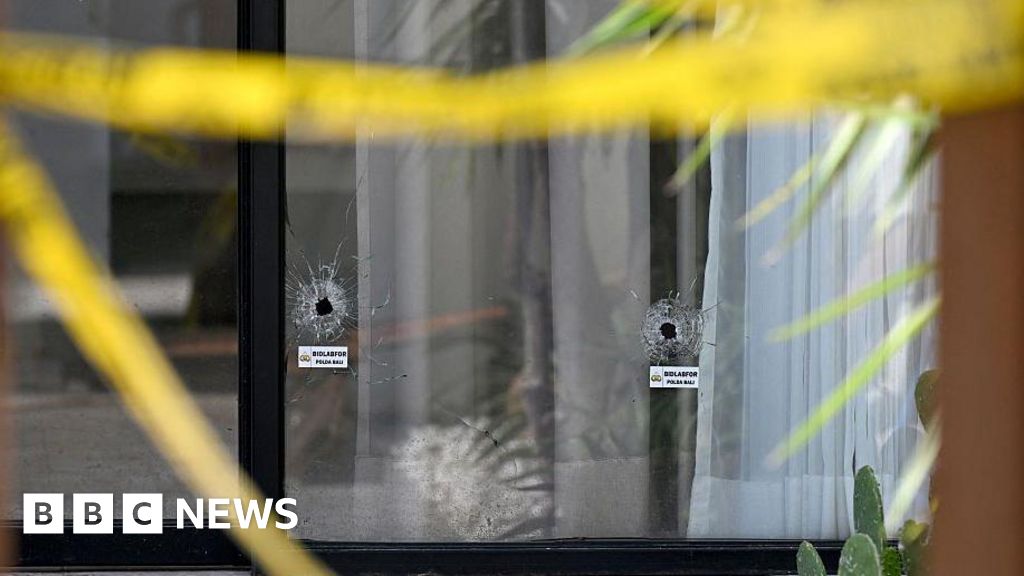ARTICLE AD BOX
By Yolande Knell
BBC News, Amman
The Jordanian army is facing an increasingly deadly fight against drug traffickers based in Syria
A man in his 20s with cropped hair agitatedly paces the corridor of the drug rehabilitation unit as he grapples with the agonies of early withdrawal.
In the TV room, a fashionably dressed young woman in a later stage of recovery wearily draws on a cigarette then rests her head in her hands.
Fighting from the decade-long war in Syria may have died down, but the country's transformation into a narco-state is sowing new seeds of misery across this region.
The rooms at Al-Rashid Hospital in Jordan's capital, Amman, look like hotel accommodation, but checking in here is an act of desperation.
"It's a long process. The patients stay for a minimum of one month, sometimes three months," says nurse Hadeel Bitar as she shows me around.
The Al-Rashid Hospital in Amman treats Captagon addicts from across the region
They come from Jordan and Gulf Arab states, where in recent years the amphetamine Captagon - cheaply manufactured in Syria and Lebanon and also known as "the poor man's cocaine" - has become the drug of choice.
"The consequences of taking it are very serious. They can include violence and psychosis," says Dr Ali al-Qam, a consultant psychiatrist and clinical director.
"It's very addictive as well. People start with one tablet and then increase by two or three, then shift into a more serious drug like crystal meth."
Huge industry
At the height of the conflict in Syria, smugglers and militant groups took advantage to supply Captagon - which is often laced with caffeine - to fighters, to boost their courage and help them stay alert on the frontlines.
With few legitimate work opportunities and growing poverty, many ordinary Syrians became involved in the drugs trade.
Image source, EPA
Image caption,Millions of Captagon pills en route to the Gulf are seized in Jordan each year
Now, with the Syrian economy shattered by a decade of war and still stifled by international sanctions, it has turned into a multi-billion-dollar industry, worth far more than any legal exports.
Although there have been public denials from Syrian President Bashar al-Assad's government, reports have linked powerful figures in business and the military to the manufacturing and distribution of Captagon.
"The areas in which Captagon production is most pronounced are those controlled by the Assad regime and close familial relations of the regime," says Ian Larson, a Syria analyst for the Center for Operational Analysis and Research (COAR), a Cyprus-based consultancy.
"Now, that remains a circumstantial linkage, but it is an indicative one."
A 2021 report, which he authored, suggested a "mind-numbing" scale of Captagon production, with a market value estimated at about $3.5bn (£2.7bn; €3.2bn) for the previous year, based on quantities that were intercepted.
The pills regularly show up in ports, airports and at crossing points - often expertly hidden. They have been found inside containers of machinery and fruits - even fake ones. The Jordanian authorities have released footage of them being removed from animal carcasses.
Shoot-to-kill
Once it was wave upon wave of Syrian refugees that spilt across the border into Jordan. Now, it is drugs.
Skirmishes between the Jordanian military and drug traffickers are becoming more frequent, with larger hauls being made.
Since the start of 2022, the army has intercepted more than 17,000 packets of hashish and 17 million pills of Captagon. Only 15.5 million Captagon pills were picked up in all of 2021, while 1.4 million were seized in 2020.
Jordan is largely a transit route to the drug's biggest market: the Gulf states, particularly Saudi Arabia.
"The most dangerous thing we've noticed recently is the presence of armed groups alongside the smugglers," says Colonel Zaid al-Dabbas of the Jordanian army, who has taken me on a tour.
Image source, Jordanian Armed Forces
Image caption,A Jordanian soldier was killed in January by drug smugglers, who are becoming increasingly ruthless
He estimates there are about 160 groups operating in southern Syria. They have "new tactics, like those of organised crime" and use drones and expensive, customised vehicles, he says.
The increase in illegal activity, along with the killing of a Jordanian soldier, has prompted a change in the army's rules of engagement: it now has a shoot-to-kill policy.
On 27 January, the military says, 27 traffickers were killed when it foiled a co-ordinated effort to cross into Jordan at several points along the border. Four others have been killed in separate operations.
The army would like more support for what another officer describes as "an undeclared war" on Jordan's borders.
"We're fighting on behalf of other countries in the region and the world at large," says Colonel Mustafa al-Hiyari. "Drugs are destroying our families, morals and values."

 3 years ago
160
3 years ago
160








 English (US) ·
English (US) ·